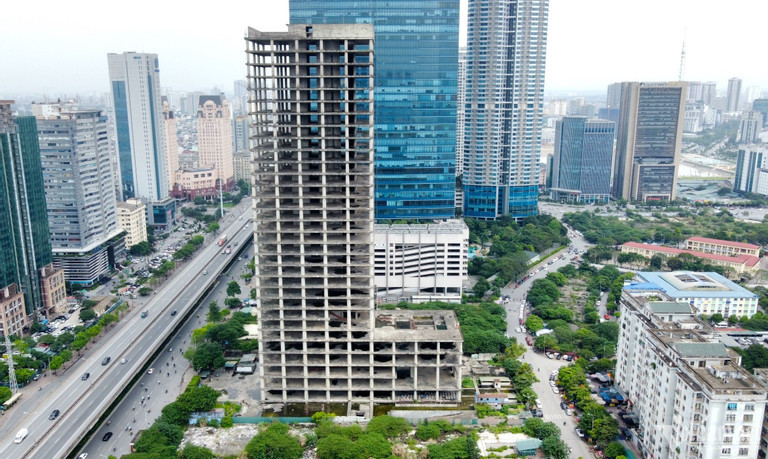
The real estate market has been quiet for the last few years with few transactions. But experts believe the situation won’t last long as the market has shown signs of recovery since late 2023.
Nguyen Minh Giang from KB Securities confirmed that he saw a moderate recovery in the last months 2023, but only in some market segments.
Old apartment buildings in Hanoi and HCM City have begun seeing prices increase. Some mid-end apartment projects have opened for sale and can attract investors.
Houses have also recovered well. Public investments have surged in some cities/provinces where many investors flock to. Meanwhile, suburban land, shophouses and villas remain a gloomy segment.
The National Assembly has officially approved three important laws which will have a direct impact on the real estate sector – the Law on Housing (amended), Law on Real Estate Business (amended) and Land Law (amended).
The typical characteristic of the real estate sector is heavy reliance on legal status. Therefore, investors have every reason to believe that the three ratified laws, to take effect on January 1, 2025, will give a push to the real estate market.
The statements by high ranking officials show that Vietnam will pursue a loosened monetary policy this year which will help the real estate market continue its recover.
A high amount of deposits will become mature in 2024 and some will be injected into production and business, while the remaining will be poured into investments.
Meanwhile, real estate is always a priority channel for investors. When policies become stable, investors’ confidence will return and it will be the time for the real estate market to warm up.
However, some market segments, such as villas and shophouses, will continue to be lackluster. Land plots will also remain gloomy because most investors are speculators and borrow money to invest in assets, while there is not much real demand and the legal status of projects remains unclear. The market segment is witnessing oversupply, so won’t be bustling in 2024.
The segments to see the strongest recovery are apartments in large cities with selling prices suitable to high-average income earners. Separate houses will also be more bustling as there always real demand in this segment.
According to Giang, there are three challenges for the real estate market.
First, global economic growth may slow down in 2024. In Vietnam, the credit growth rate was just 7.39 percent by the end of October 2023 and the figure only increased more rapidly in the last two months of the year. This showed that businesses’ demand for loans was low as interest rates were very high before.
The world economy remains lackluster, and domestic cash turnover is low. Vietnam’s PMI (purchasing managers’ index) was below 50 points in some months. All the factors show low demand in the economy. Not only real estate, but all business fields are facing the challenge.
Second, cash flow. Accounting for 21 percent of total outstanding loans of the economy in 2023, the outstanding loans provided to the real estate sector grew more sharply than general growth. This means that the policies to help solve problems in the real estate market brought effects.
However, problems still exist with cash flow. If legal problems cannot be solved and real estate products cannot be launched in 2024, the risks will be high. Moreover, VND120 trillions dong worth of bonds will mature, the highest level in the last five years.
Third, the legal framework. Realtors complain that they face difficulties when executing projects. This partially explains why supply has decreased over many years.
Asked about the prospects of the real estate market, he predicted that a reversal will be seen in the second half of 2025, while the market will prosper again from 2027, when the national economy overcomes the difficult period, the legal framework gets completed, and people’s incomes increase again, while businesses will see strong rises thanks to reasonable business strategies.
Hong Khanh